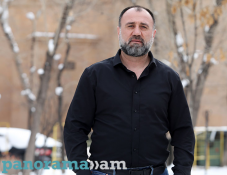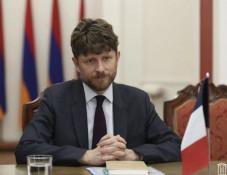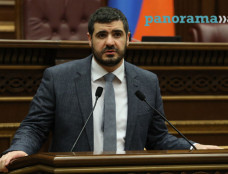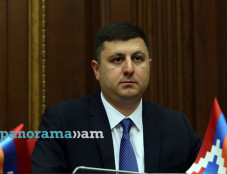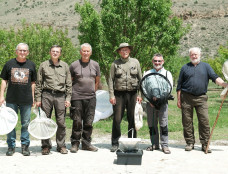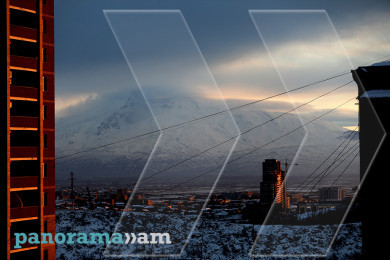
Erdogan’s improbable adventures in Syria, Libya and elsewhere
During his February 3 trip to Kyiv Turkish President Recep Tayyip Erdogan made number of statements pleasing Ukrainians. The president in particular reaffirmed that Turkey does to recognize the Crimea’s annexation and pledged to help build housing for 500 families of Crimean Tatars - Turkic ethnic group indigenous to Crimea - who have relocated to other parts of Ukraine.
Moreover, during the official welcoming ceremony in Kyiv, Erdogan greeted Ukrainian soldiers with “Sava Ukreine” (glory to Ukraine), which has been used in Ukraine during official ceremonies since 2018 and is largely seen as a symbol of opposition to Russia. This behavior is pleasing Ukraine and equally annoying Russia that had developed close relations with Turkey over the past years.
Turkey’s approaches to the Ukrainian issue demonstrate that Russian-Turkish rapprochement is a result of temporary convergence of interests, and not the cooperation but the competition is the dominant element in their relations. Developments around Syria’s Idlib came to prove the argument.
On February 3, Syrian government forces backed by Russia killed at least five Turkish soldiers and civilian contractors. The Turkish forces hit back and bombarded the positions of the Syrian government forces, killing 13 troops. The incident led to controversy and mutual accusations between Moscow and Ankara.
To remind, the two countries support opposing sides in Syria's nearly nine-year war, Russia supports President Bashar al-Assad in the war, while Turkey backs the rebels. The countries, however, have worked together along with Iran to contain the bloodshed partially through establishing de-escalation zone in 2017.
Syria’s northwest province of Idlib is the last bastion of the rebels, and the army has launched attacks to retake it. The latest losses imposed on Turkey have angered President Erdogan who called for the Russian troops not to stand in way in Syria's Idlib, at the same time expressing readiness ‘to sit and discuss everything without frustration.’
It is notable, that the U.S. Secretary of State Mike Pompeo on Monday condemned on Twitter ‘the ruthless actions by Russia and Iran hampering efforts to bring peace to northern Syria. The statement by Secretary Pompeo came amid the deteriorating relations between the US and Turkey and seems an attempt to split the Russian-Turkish cooperation.
The escalation in Idlib cam against the backdrop of Turkey’s decision to send troops to Libya. Some sources suggest, some of the groups consisted of militants affiliated with Al-Qaida and Islamic State who are directed by Turkey to fight for Fayez al-Sarraj. Libya’s Prime Minister. The militants have been reportedly motivated to fight against Russians who had allegedly destroyed their homes in Syria.
Turkey’s president has launched an aggressive policy from Syria to North Africa which has caused frustration among many players. If in Syria Turkey is in confrontation with Russia, its actions in Libya are not approved by France and Greece.
On January 29, at a meeting with Greek Kyriakos Mitsotakis, French president Emmanuel Macron vowed to dispatch war frigates to the eastern Mediterranean as a standoff between Greece and Turkey over regional energy reserves intensifies. The next day Macron delivered remarks at an annual dinner hosted by the Coordinating Council of Armenian Organizations in France (CCAF), saying Turkey’s “revisionism” on the Armenian genocide is undercutting history and denouncing “a new eastern Mediterranean expansionism’ 100 years after the Treaty of Sevres. Reference to the Treaty of Sevres was an explicit hint at Erdogan about the defeat of the Ottoman Empire and the its ultimate break-up.
It is unclear whether Erdogan’s dream of Neo-Ottomanism or personal ambitions prompt him to challenge the balance of power in the region on different fronts. Yet one thing is certain - the history tells that “regional hooliganism” never remains unpunished.
Anna Mkrtchyan, political scientist
Newsfeed
Videos





